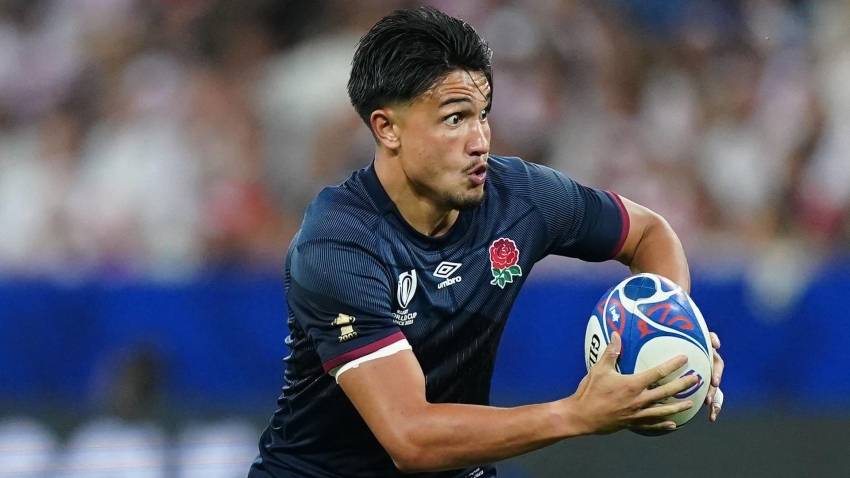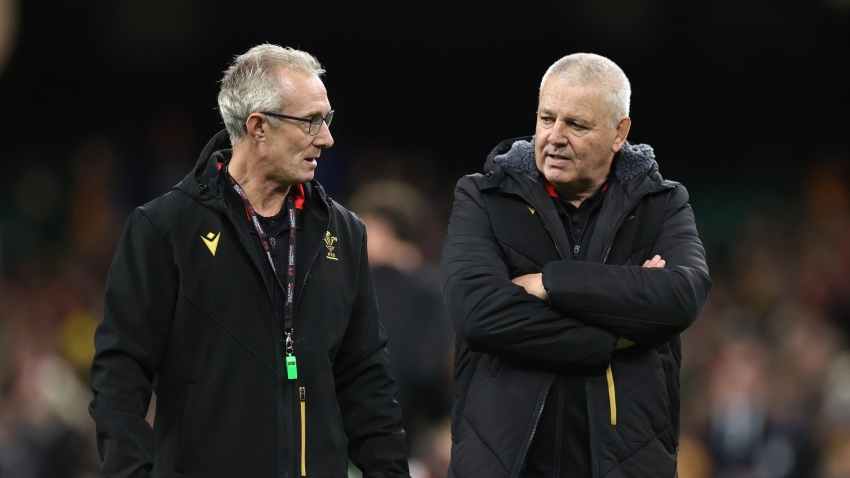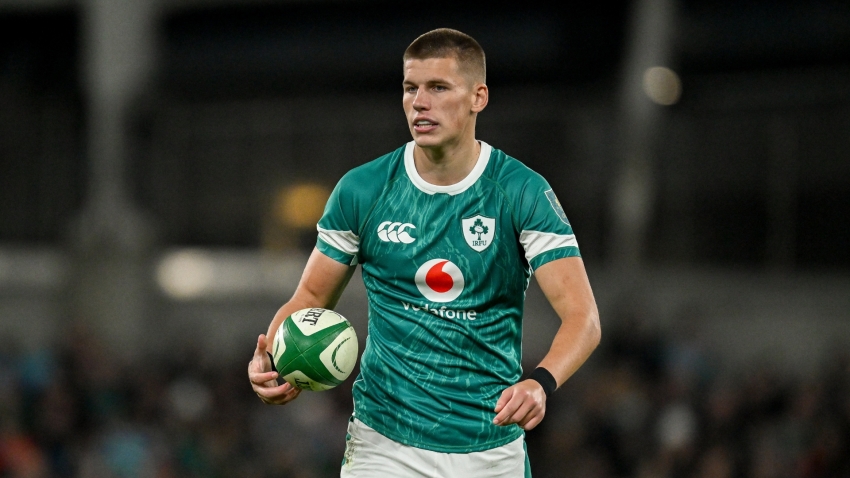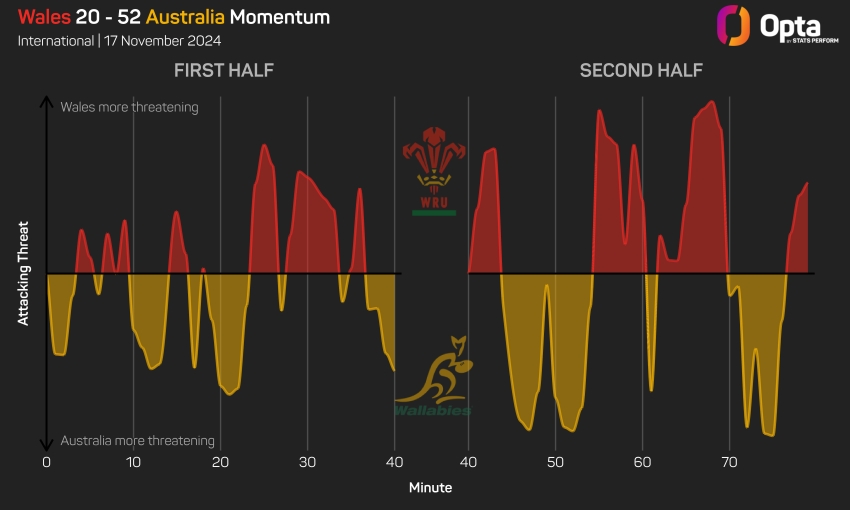Andy Farrell believes Sam Prendergast is ready to step up ahead of his first Ireland start against Fiji at the Aviva Stadium on Saturday.
Farrell has made seven changes to his team, handing first caps to Leinster's Gus McCarthy and Ulster's Cormac Izuchukwu for the penultimate game of the Autumn Nations Series.
The Ireland head coach has handed Prendergast the number 10 jersey for the first time after he was used off the bench in the closing stages of last week's win over Argentina.
Prendergast has only started eight games for Leinster, but Farrell had no hesitation in handing him a first start after he impressed on the Emerging Ireland tour of South Africa.
"I'm confident from what we've seen. We took him on the Emerging [Ireland] and he played in all of those games," said Farrell.
"The aim of that was to grab hold of that team and make sure that he treated it like it was his own, as though he was in charge, and he did that in spades.
"This week we've seen the benefit of that, but we need to see it transfer, obviously.
"Yes, his character is composed, confident but yet not over-confident. He's assertive in what he wants, and he has a nice way about how he goes about his business.”
Farrell also had a glowing review for Izuchukwu, saying: "Izzy has been in and around the squad for a while. The first Emerging Ireland tour was when we first came across his ability, his athleticism, his point of difference.
"That was a couple of years ago but the improvement in his maturity of his game, because he was young in the 15-a-side game when the first tour was on, but the difference between the first and second tour was like chalk and cheese.
"His ability and potential with that maturity, he deserves a shot to show us all what he's got."
On McCarthy, who captained the Ireland Under-20s to a Six Nations Grand Slam in 2023, Farrell said: "He's been a captain and you can see why because his maturity in how he goes about the game."
He added: "We took him on the training week [to Portugal] as a development player and he showed up unbelievably well. He forced our hand to keep him in the squad first and foremost and he deserves a shot to see what he can do as well."
Ciaran Frawley also returns to the bench after missing out last weekend on the back of a poor outing against New Zealand.
And Cian Healy must wait another week for a record-breaking 134th cap - having drawn level with Brian O'Driscoll against Argentina - after the prop was left out of the 23.
Ireland team to play Fiji
Jamie Osborne; Mack Hansen, Robbie Henshaw, Bundee Aki, Jacob Stockdale; Sam Prendergast, Craig Casey; Andrew Porter, Gus McCarthy, Finlay Bealham; Joe McCarthy, Tadhg Beirne; Cormac Izuchukwu, Josh van der Flier, Caelan Doris (capt).
Replacements: Rob Herring, Tom O'Toole, Thomas Clarkson, Iain Henderson, Cian Prendergast, Conor Murray, Ciaran Frawley, Stuart McCloskey.































